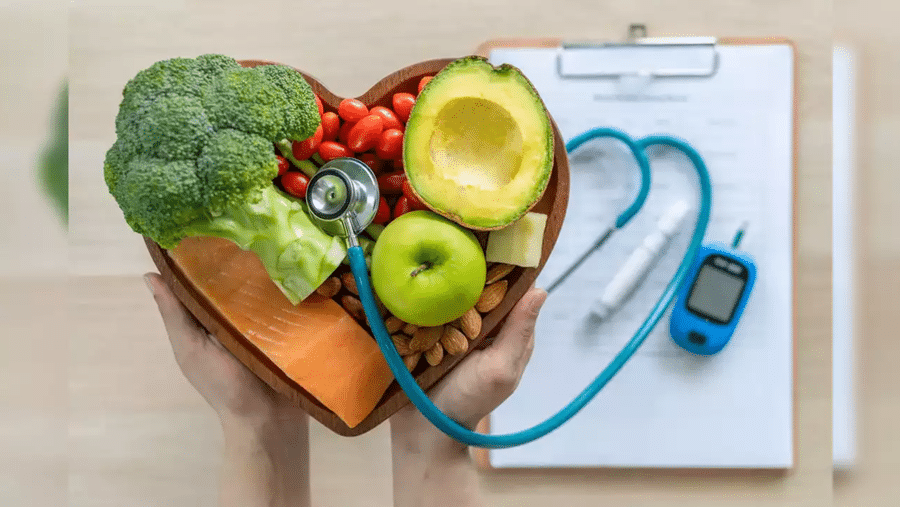Navigating the journey toward a healthier weight can often feel like sailing against the tide, especially when the numbers on the scale climb despite a menu of nutritious foods. It’s a common conundrum: the effort to eat clean aligns with every expert’s advice, yet the expected results remain elusive. This enigma suggests that factors beyond the plate might be at play. In the quest for balance, it becomes critical to unearth the less obvious influences that could be tipping the scales. This exploration ventures beyond mere calorie counting, shedding light on the subtleties of weight management in the context of overall health and lifestyle choices.
Contents
You Are Stressed

Chronic stress is a silent culprit in the battle against weight gain. When the body is under stress, it releases cortisol, a hormone that, in high levels, has been linked to increased abdominal fat. This biological response can create a cycle where stress-induced cravings for comfort foods – even healthy ones – can lead to a surplus of calories. Moreover, the desire to eat for emotional relief can make portion control and decision-making more challenging, regardless of food healthfulness.
Furthermore, stress can indirectly influence weight by impacting other areas of life. It can disrupt sleep patterns, which further complicates metabolic processes and appetite regulation. The comfort of eating healthy foods then becomes a source of solace, but without moderation, this seemingly benign habit can contribute to a caloric intake that surpasses the body’s energy requirements, leading to weight gain.
Your Portion Sizes May Be Off

Even when choices align with nutritional recommendations, the quantity of food consumed plays a pivotal role in energy balance. A common oversight is the assumption that healthy foods are exempt from caloric limits. However, caloric intake from avocados, nuts, whole grains, and other nutrient-dense foods can quickly accumulate. This is where understanding and adhering to appropriate portion sizes becomes critical to weight management, as a surplus of calories, irrespective of their source, will be stored as fat.
To maintain a healthy weight, it is crucial to develop an awareness of serving sizes. Nutritional information is based on specific serving sizes, and without this knowledge, it is easy to consume two or three times the intended amount. Tools like measuring cups, food scales, and visual comparisons can aid in developing a keen eye for serving sizes, facilitating a better balance between caloric intake and expenditure.
You’re Not Getting Enough Exercise

Regular physical activity is an essential component of weight management, but it is often underestimated in its importance. A diet rich in healthy foods is only one side of the energy balance equation; exercise is the other. Without sufficient physical activity, the body may not utilize all the calories consumed, even from the healthiest of meals. This can lead to a gradual increase in weight as the surplus energy is stored as fat. Exercise not only increases energy expenditure but also builds muscle mass, which in turn boosts metabolic rate, making it easier to maintain a healthy weight.
The type and intensity of exercise matter as well. Low-intensity activities such as walking are beneficial, but incorporating high-intensity workouts and strength training can have a more significant impact on metabolism. These activities help to create a metabolic environment that favors fat loss and muscle preservation. In the absence of regular, varied exercise, the body can become more efficient at storing energy, and less efficient at burning it, which is not conducive to weight loss or maintenance.
You’re Not Sleeping Enough

Sleep deprivation is a frequently overlooked factor that can thwart efforts to maintain a healthy weight. Inadequate sleep disrupts the balance of hunger hormones, ghrelin and leptin, leading to increased appetite and a stronger desire for energy-dense, high-calorie foods. A lack of sleep can also lead to fatigue, which might decrease motivation for physical activity and make it more tempting to opt for convenient, less healthy food options. Furthermore, when energy levels are low, there might be a reliance on high-calorie food to provide a quick energy boost, contributing to an overall increase in calorie intake.
Moreover, sleep quality affects decision-making processes, including food choices. Tiredness can impair the brain’s frontal lobe, which governs impulse control and decision-making, while simultaneously stimulating the reward centers that crave sugary, fatty foods. This combination can be detrimental to adhering to a healthy eating plan. Ensuring sufficient and quality sleep is vital, as it restores the body’s natural balance and supports the physiological and psychological processes involved in weight management.
Your Thyroid May Be to Blame

An underactive thyroid, known as hypothyroidism, can be a hidden cause of weight gain. This small gland in the neck produces hormones that regulate metabolism, and when it is not functioning correctly, it can cause a slowdown in metabolic rate. This deceleration in metabolism means that even low-calorie diets might not prevent weight gain. Symptoms of an underactive thyroid include fatigue, dry skin, and unexplained weight gain. A simple blood test can diagnose the condition, and treatment often involves hormone replacement therapy, which can help in restoring a normal metabolic rate.
Ignoring potential thyroid issues can prolong the struggle with weight management. It is not uncommon for individuals to attribute their inability to lose weight solely to dietary or lifestyle factors without considering the role of their thyroid health. Regular check-ups and conversations with a healthcare provider can lead to early detection and management of thyroid-related weight issues. With appropriate treatment, individuals can see an improvement in their metabolic rate and, consequently, their weight control efforts.
You’re Overlooking Liquid Calories

Beverages are often the hidden culprits in an otherwise healthy diet, with their content easily dismissed when considering daily caloric intake. Healthy smoothies, freshly squeezed juices, and even the morning latte can contain significant amounts of sugars and fats. While these drinks can have nutritional benefits, such as providing vitamins and minerals, their liquid form can lead to rapid consumption of high-calorie counts without the satiating effect of solid foods. This means that liquid calories can add up quickly throughout the day, without providing the same level of fullness that helps regulate overall food intake.
It is crucial to account for the caloric content of drinks as part of the total daily intake. Swapping out sugar-sweetened beverages for water or herbal teas can significantly reduce calorie consumption. When choosing to indulge in a high-calorie drink, it should be considered as part of a meal rather than an addition to it. Attention to the type of drink, serving size, and frequency of consumption can play a major role in preventing unintentional weight gain and supporting efforts to maintain a healthy weight.
Your ‘Healthy’ Foods Aren’t So Healthy

The marketplace is saturated with food products labeled as “healthy”, “natural”, or “organic”, which can mislead consumers about their nutritional value. Foods like granola bars, gluten-free snacks, or fat-free products often contain added sugars, unhealthy fats, or excess calories. Even foods that genuinely contain healthy ingredients can become less beneficial when processed or paired with high-calorie dressings and sauces. The health halo effect can lead consumers to eat larger portions of these foods, under the impression that they are unequivocally good for health, overlooking their actual calorie and nutrient content.
Reading nutrition labels is an essential skill for discerning the true health value of a product. Paying attention to serving size, ingredients list, and the amount of added sugars and fats can reveal a lot about the product’s potential impact on weight. Moreover, whole, unprocessed foods are generally more conducive to weight management than their processed counterparts. Even when foods are branded as healthy, it’s the actual nutritional content and how they fit into the overall diet that matters most.
Conclusion
In the pursuit of weight management, it’s clear that there’s much more to consider than the quality of food alone. Factors such as stress, exercise habits, sleep quality, thyroid health, overlooked liquid calories, and misleading food marketing can all play a role in unintentional weight gain. By expanding the focus beyond diet to include these other elements of a healthy lifestyle, it becomes possible to create a more comprehensive and effective strategy for achieving and maintaining a healthy weight. As each person’s situation is unique, those struggling with weight issues might find it helpful to consult with healthcare professionals to identify and address any underlying issues contributing to their weight challenges.


